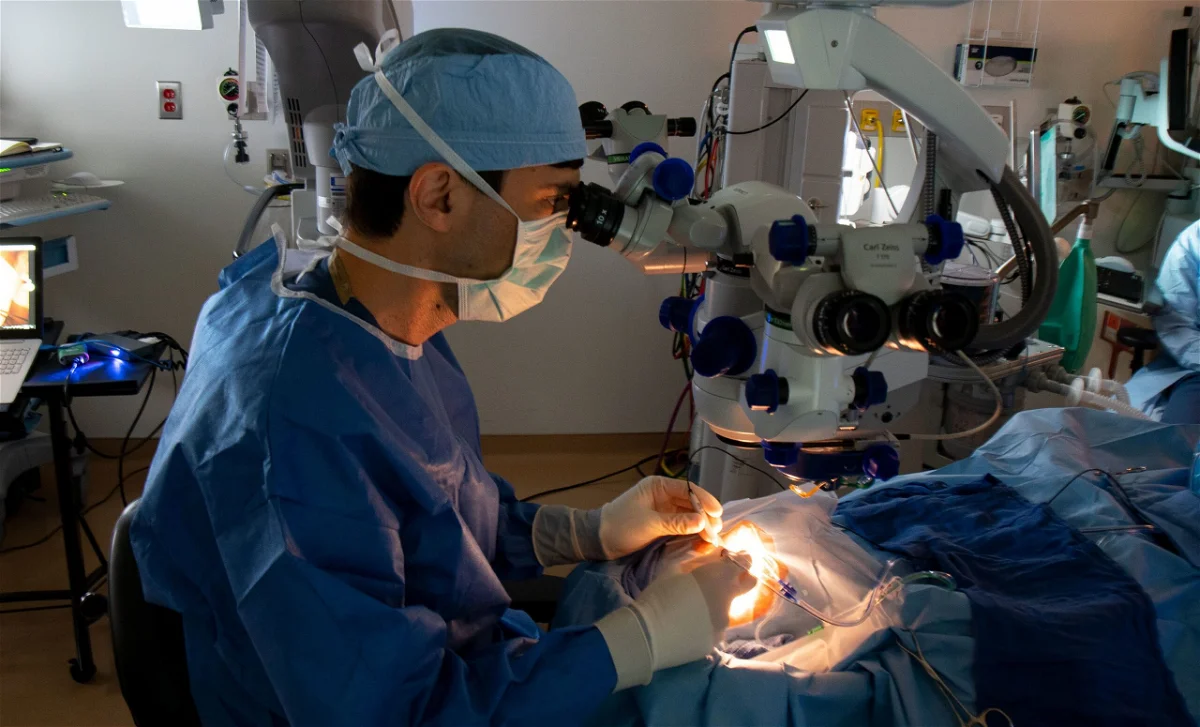Olivia Cook’s journey has been one of remarkable transformation. Born with a rare form of inherited blindness, her world was confined to a narrow tunnel of sight, with dimly lit places shrouded in shadows. But that all changed when she decided to take part in a groundbreaking clinical trial.
The trial offered a glimmer of hope in the form of an experimental gene-editing treatment using CRISPR, a revolutionary tool in genetic science. For Olivia, it meant undergoing surgery on her left eye, a decision that would alter her perception of the world forever.
Now a college student at Missouri State University, Olivia reflects on the profound impact of the treatment. “My life has mostly changed in terms of being hopeful that there is going to be more science and findings in the future,” she shares. Post-surgery, she notices a significant improvement in her vision, especially in dim lighting conditions.
Her experiences post-treatment are nothing short of miraculous. Sitting with friends on a balcony adorned with twinkling Christmas lights, Olivia is awestruck by the newfound clarity in her vision. For the first time, she can discern the subtle features of her friends’ faces, a moment of revelation amidst the dim evening light.
But perhaps the most poignant moment comes months later, during a conversation with her mother. As she speaks, Olivia suddenly notices a flickering candle behind her, a sight she had never before perceived. It’s these small, everyday moments that underscore the profound impact of the treatment on her life.
Before the trial, Olivia had become adept at masking her vision challenges, a silent struggle she bore alone. But now, emboldened by the success of the treatment, she no longer feels the need to hide. “You wouldn’t really know that my eyesight is terrible until you spend a significant amount of time with me,” she says. “If we saw each other in the street, if I introduced myself to you, you’d never know.”
The trial represents a milestone in medical history, marking the first time CRISPR has been used in living patients’ eyes. Dr. Eric Pierce, director of the Ocular Genomics Institute, hails the results as a “proof of concept” for the potential of CRISPR-Cas9 gene editing in treating inherited retinal disorders.
Funded by Editas Medicine and conducted across various esteemed institutions in the United States, the trial holds promise for the future of genetic medicine. With further research and development, CRISPR technology could revolutionize the treatment of genetic diseases, offering hope to millions worldwide.
For Olivia and others like her, the trial represents more than just a scientific breakthrough – it’s a beacon of hope, illuminating a path towards a brighter future. And as she looks ahead, Olivia embraces this newfound optimism, ready to face the world with eyes wide open.















































